ASTANA – International experts considered ways to enhance greater engagement at a time of unprecedented geopolitical tensions, climate change and water crisis, as well as counterterrorism efforts, nonproliferation and reforms of international institutions during a general session on global security challenges held on the first day of the Central Asian Security and Cooperation Forum (CAF) on July 13.
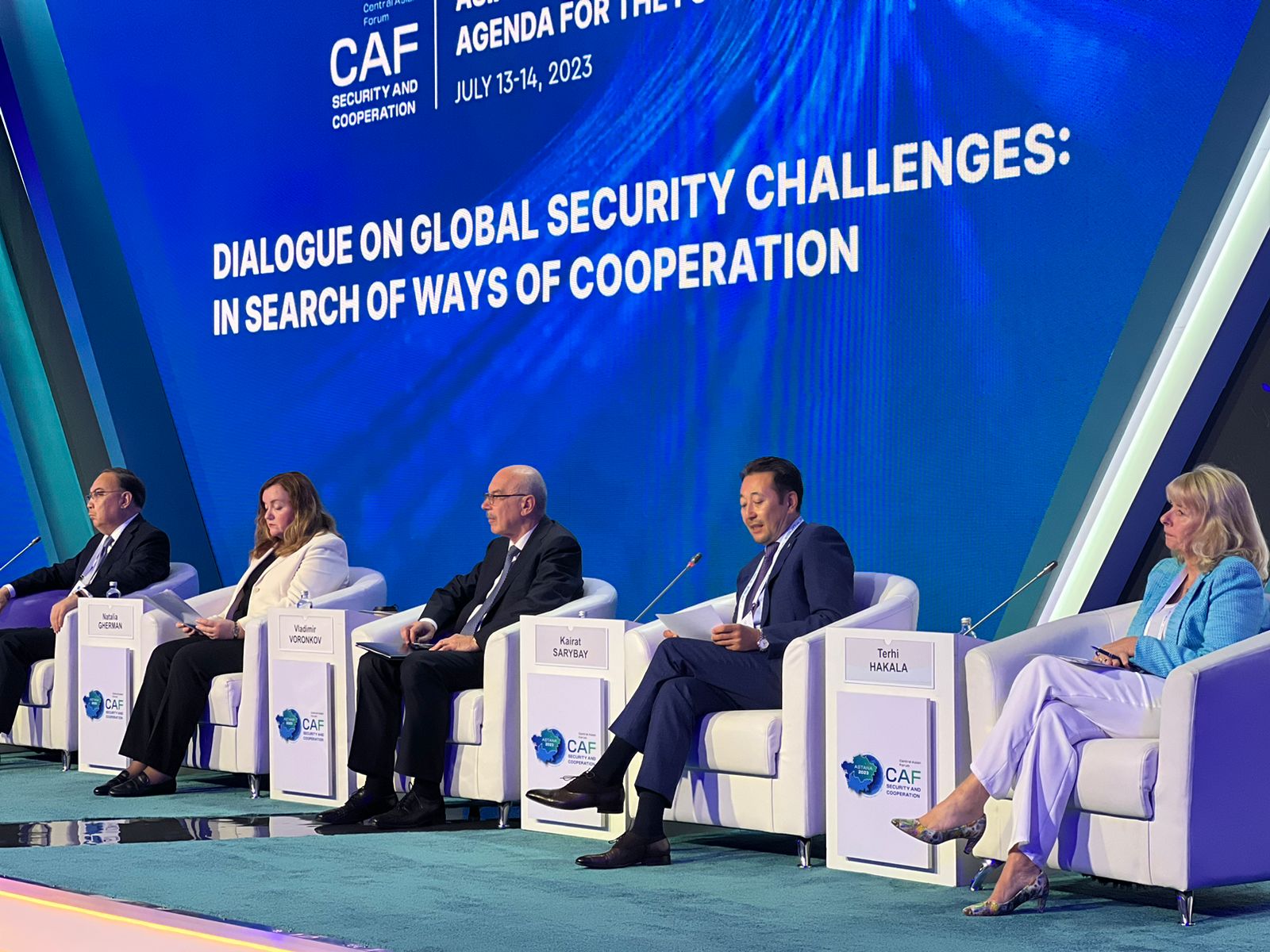
The session participants discussed future vision of global cooperation amid global challenges. Photo credit: The Astana Times.
The session, moderated by Narushige Michishita, vice president and professor at the National Graduate Institute for Policy Studies in Tokyo, outlined an acute task for the international community to build bridges and find common ground to solve the most challenging situations in a rapidly changing geopolitical environment.
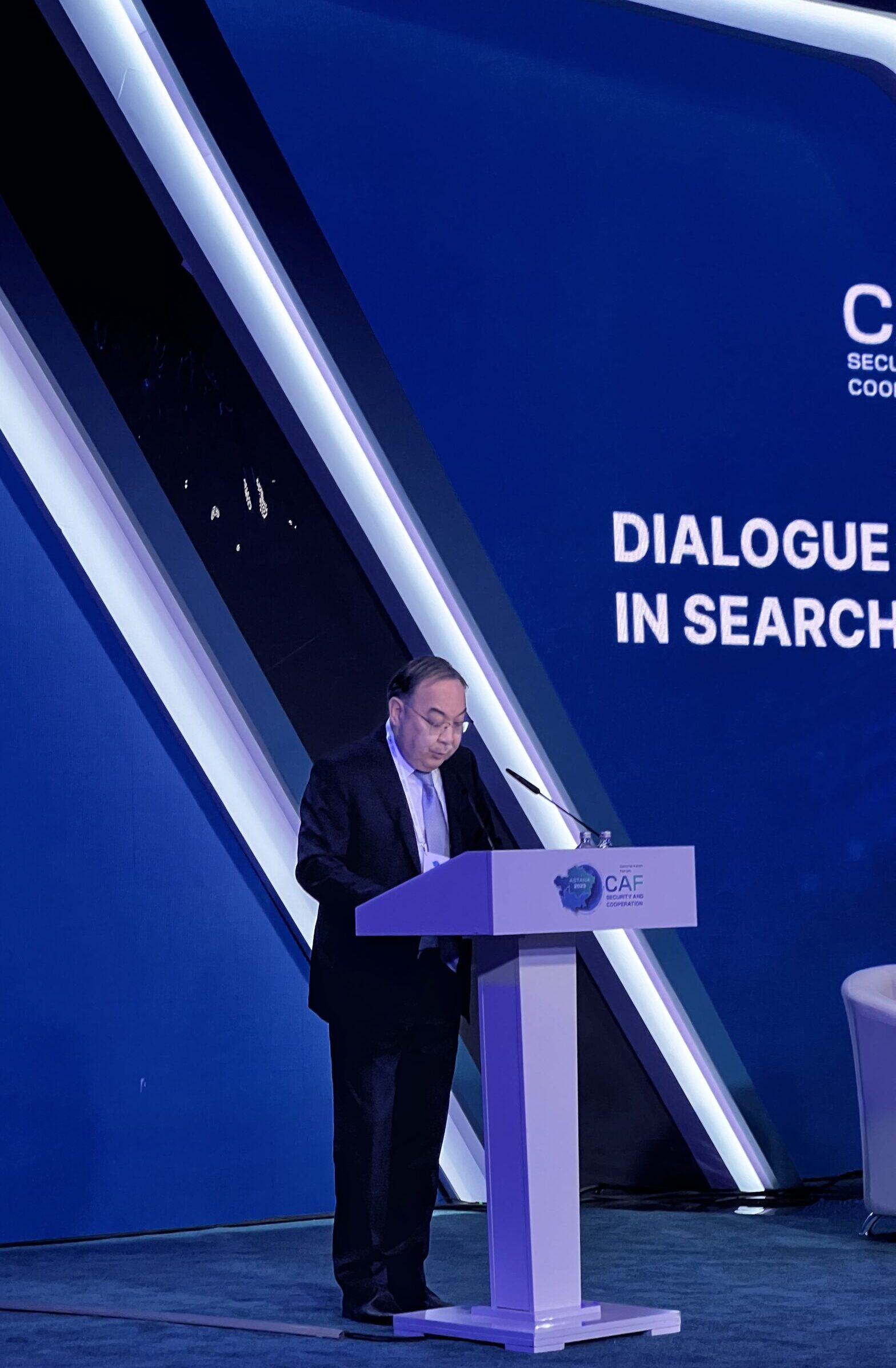
Erzhan Kazykhan. Photo credit: The Astana Times.
The session participants discussed the future vision of global cooperation amid the rise of challenges and threats, including terrorism, climate change, demographic imbalances, rising levels of inequality, and the changing nature of public administration.
Erzhan Kazykhan, Deputy Chief of Staff of the Kazakh President and Special Envoy for International Cooperation, highlighted the rising risks facing Asia and Central Asia, including those stemming from instability in Afghanistan and climate change.
“We find ourselves at a critical moment with the foundation of international security entering a new stage of uncertainty, increasing polarization and fragmentation compromising the world order built since the establishment of the United Nations [UN],” he said.
The process of division is not purely geopolitical, he said, as they are also motivated by economic undercurrents. Economic policy itself is openly weaponized. These confrontations include sanctions, trade wars, targeted debt policies, reduced access or exclusion from financing and investment screening.
“Together, these factors are gradually undermining the foundation upon which the global peace and prosperity of recent decades rest, including free trade, global investment, innovation and fair competition. Recent trends including rising inequality, social divides, widening gaps of culture and values can become existential threats,” he said.
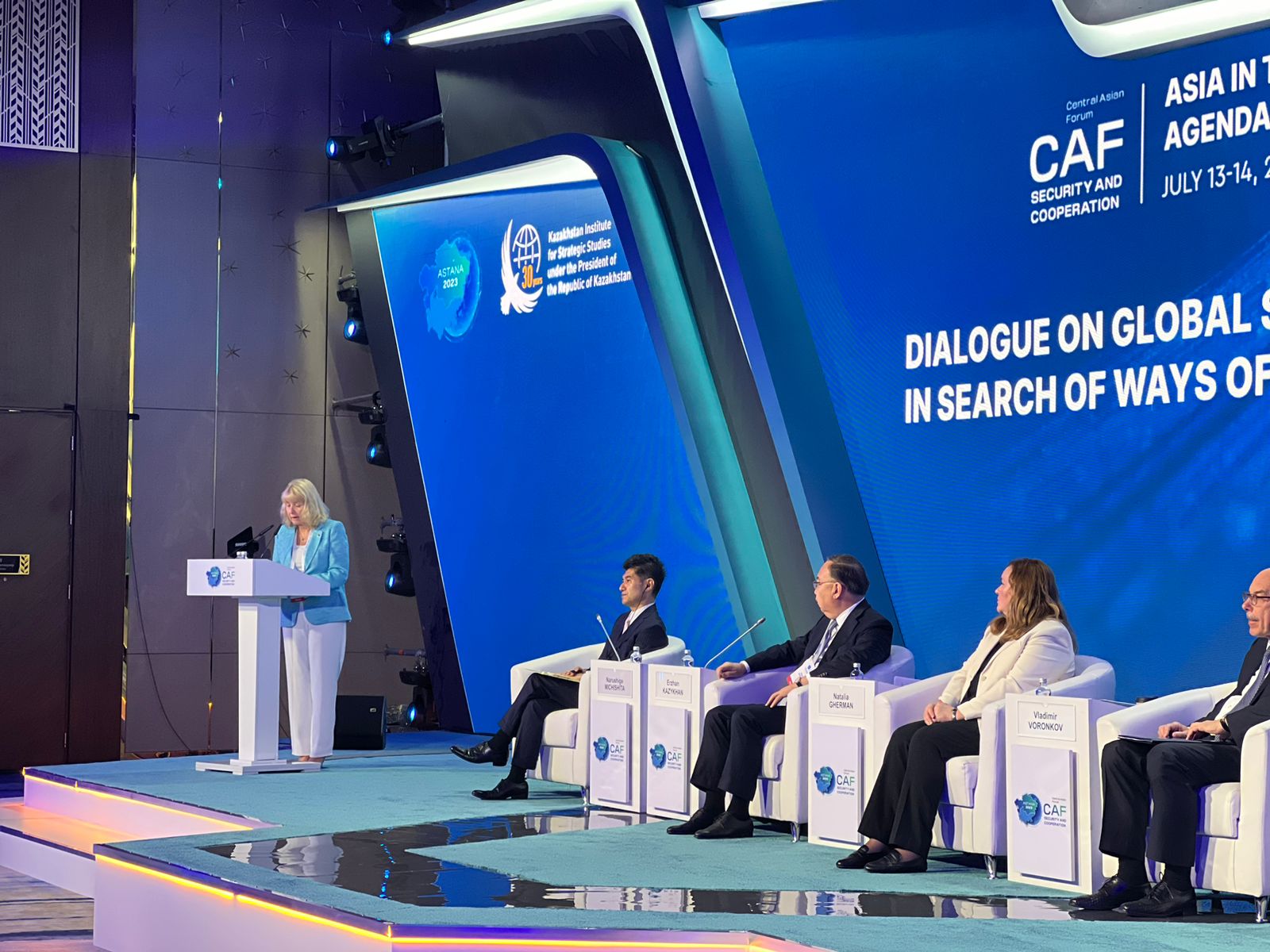
Terhi Hakala emphasized the EU commitment to enhance cooperation with Central Asia. Photo credit: The Astana Times.
Kazykhan emphasized that for many decades Kazakhstan has stood against the principle of division and fought for unity in all states. The UN should remain the only universal organization, which unites everyone together. However, he said, the world will not succeed in tackling these challenges in the absence of a comprehensive reform of the Security Council.
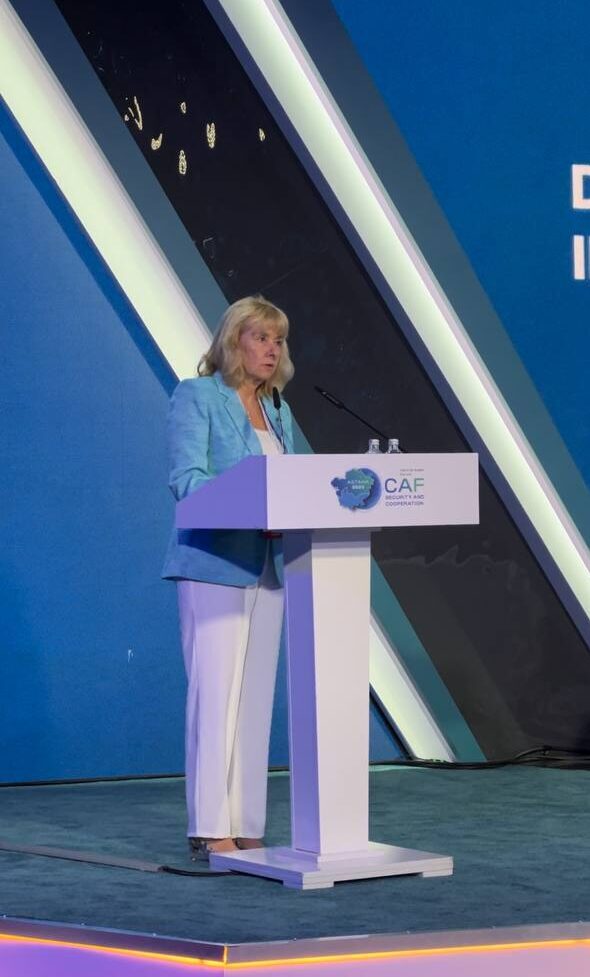
Terhi Hakala. Photo credit: The Astana Times
Regarding climate change and the water crisis in the region, Kazykhan urged that more resources should be allocated to support the International Fund to Save the Aral Sea, reiterating Kazakhstan’s proposals to establish a project office of the Central Asian countries in Almaty and hold a Regional Climate Summit in Kazakhstan in 2026.
Asia has great potential to resolve differences between countries and improve the quality of state relations, said Kairat Sarybay, Secretary General of the Conference on Interaction and Confidence Building Measure in Asia (CICA).
“To achieve these goals, international and regional organizations can be an important element of maintaining peace, security and prosperity in the region,” he noted, referring to the Shanghai Cooperation Organization, the Collective Security Treaty Organization, the Organization of Turkic State and other organizations.
Sarybay emphasized the special role of CICA among organizations in Asia, which contains 28 member states that cover 90% of Asia and half of the world’s population, providing “a platform to enhance cooperation for promoting peace, security and stability in the region on an equal opportunity and mutual consent.”
“While a number of regional structures around the globe are facing problems of new goal setting, the changing world, stagnation and further development, CICA continues to grow and be actively involved in trying to address current challenges,” he said.
Terhi Hakala, the European Union (EU) Special Representative for Central Asia, said the EU is committed to cooperation with Central Asia through its strategy with the region and the Team Europe initiative. She mentioned the EU’s cooperation with Central Asian countries on Afghanistan, as well as in counterterrorism and fighting radicalization, extremism and arms trafficking.
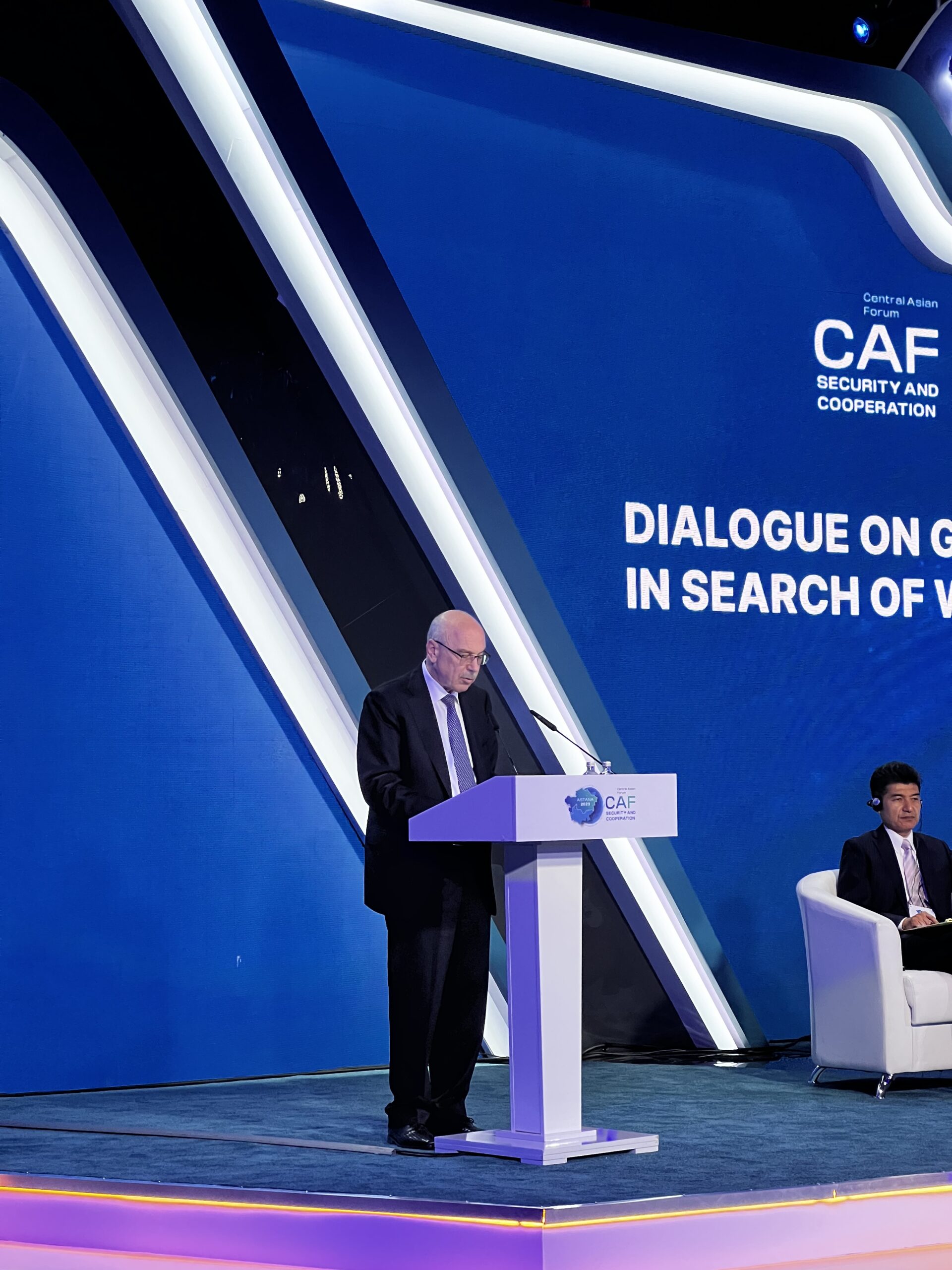
Vladimir Voronkov. Photo credit: The Astana Times.
“The EU is strongly committed to upholding and promoting rules that are based on multilateralism and the principles of the UN Charter. It is important to have strong multilateral institutions and agreed binding rules that govern relations of all states, big and small,” she said.
Hakala noted that the concept of security has multiple dimensions that call for a comprehensive approach, as recent geopolitical trends have led to increased polarization and distrust among countries.
Vladimir Voronkov, the Under-Secretary-General of the UN Office of Counter-Terrorism, covered the work of the UN in the Central Asian region, including the Joint Action Plan for the Implementation of the UN Global Counter Terrorism Strategy in Central Asia and efforts to prevent terrorist threats emanating from Afghanistan. He also emphasized the UN’s support in creating a regional expert council for the rehabilitation and reintegration of repatriates from the conflict zones in Syria and Iraq, “which is one of the top priorities for UN Secretary-General Antonio Guterres.”
“The UN highly appreciates the efforts of the Central Asian states in repatriating their citizens. Kazakhstan, by the way, is a leader in this area, having repatriated almost all of its citizens,” Voronkov said, adding that Central Asian countries have made significant progress in recent years in strengthening regional cooperation and interaction with international partners to develop its economy and society and address common problems, including terrorism.
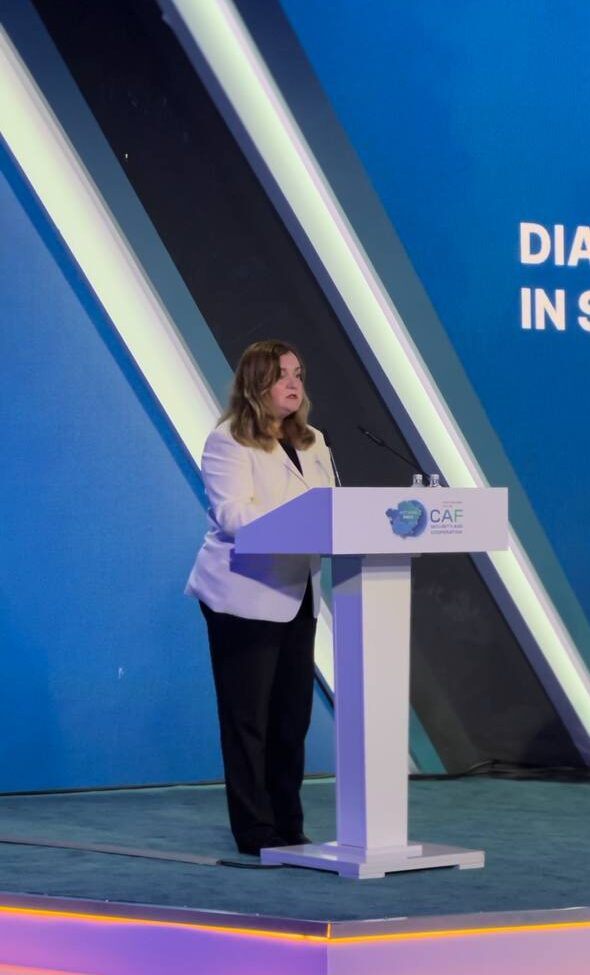
Natalia Gherman. Photo credit: The Astana Times.
Natalia Gherman, the special representative of the UN Secretary-General for Central Asia and head of the UN regional center for preventive diplomacy for Central Asia, said that today’s event demonstrates Kazakhstan’s commitment to the principle of multilateralism in international relations and the search for mutually acceptable and sustainable solutions for the Central Asian region and the entire continent.
“The states of Central Asia are already setting a leading example, demonstrating a strong political will to work together in the fight against terrorism at the regional level,” she said.
The Central Asian Security and Cooperation Forum brought together prominent thinkers and political scientists from the world’s leading research centers. More than 60 international speakers participated in the event, including from Armenia, Azerbaijan, Belgium, China, India, Indonesia, Japan, the Kyrgyz Republic, Mongolia, Russia, Singapore, South Korea, Tajikistan, Turkmenistan, Türkiye, the United States and Uzbekistan.
